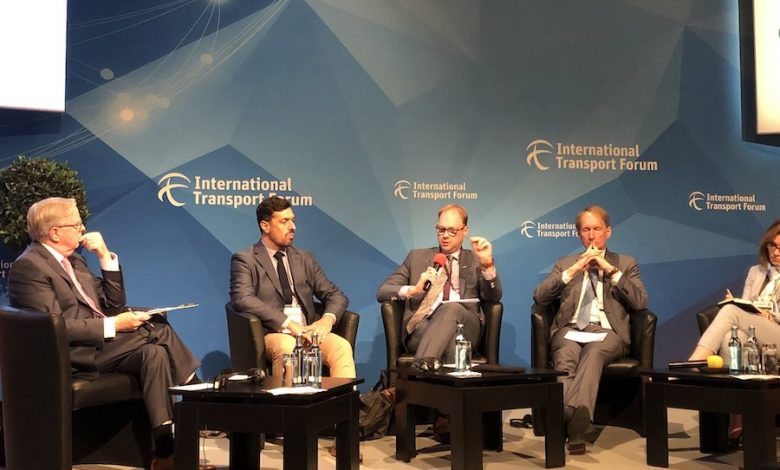Maritime subsidies in the spotlight at ITF Summit

Maritime subsidies formed a central topic for debate at yesterday’s 2019 ITF Summit in Leipzig. Organised by the International Transport Forum, the summit set the scene by describing the large changes seen in maritime transport over the last decade. Many shipping companies have not recovered from the 2008 crisis yet. Overcapacity has put freight rates and profitability under pressure. Environmental issues have become more prominent, in particular sulphur regulations and the 2018 IMO Initial GHG Strategy. As part of a longer trend, shipbuilding activity in the main ship types (container, bulk, tankers, offshore) moved to Asia, whereas construction of complex ships (such as cruise, research, naval ships and mega yachts) has remained in Europe, but is under increasing competition from Asian manufacturers. In terms of employment, the number of European seafarers has declined and more seafarers are now coming from developing countries.
In that environment delegates were told government support has had mixed impacts. In the EU, a strategic choice was made to support the shipping sector via state aid, but not the shipbuilding sector. In various Asian countries, both sectors are supported. The result of subsidised shipbuilding has been overcapacity in shipbuilding and low costs for newbuilds, whereas maritime subsidies provided shipping companies with the means to acquire these.
“Maritime subsidies have had and are still heavily distorting competition and have contributed to the current overcapacity in merchant shipbuilding”, said Christophe Tytgat, secretary general of shipyard association, Sea Europe. Tytgat used the ITF platform yesterday to make a plea for a multilateral agreement on shipbuilding subsidies.
Maritime subsidies can take various forms, from expenditures to favourable tax treatment in the form of tonnage taxes that replace the regular corporate income tax, delegates were told.
“Tonnage taxes are essential to keep European shipowners – and their offices – in Europe”, stated Martin Dorsman, secretary general of the European Community Shipowners’ Associations (ECSA).
Philippe Alfonso from the European Transport Workers’ Federation (ETF) said maritime subsidies could be explained by the emergence of flags of convenience. He deplored the fact that most of the subsidies in Europe have not helped to retain seafarer jobs for Europeans.
Different ways were discussed in which maritime subsidies could be conditioned. ETF’s Alfonso said: “It would make sense to make maritime subsidies, such as tonnage taxes, conditional on creation of European seafarer jobs.”
Sea Europe’s Tytgat, meanwhile, said he could envisage a system in which local content requirements could be added to subsidies for short sea shipping.
The forum continues today.
